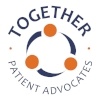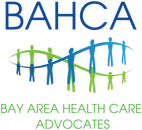
In the preceding blogs titled Crash Course in Nursing Homes, Part 1, Part 2 and Part 3, I shared Susan's experiences with illegal nursing home practices and lessons learned. This post summarized the lessons learned for easy reference.
Lesson 1: Rehab/nursing home stays are only covered by Medicare if a patient is first admitted to a hospital for 3 midnights. You may think you're admitted to the hospital but you may actually only be on observation status. Observation status does not qualify you for medicare coverage for a skilled nursing facility. Ask your nurse, doctor, or the admissions team if you are "admitted" or on "observation status."
Lesson 2: If working with a placement agent, ensure they are working for you. Placement agents are free to patients/families to use; they are paid a referral fee by the facilities with whom they place people. Thus, an unethical placement agent may encourage a resident or family to select a facility that will pay a larger referral fee, even if it's not as well suited to the resident.
Lesson 3: Understand the risks of living in an unlicensed facility. Unlicensed facilities are not following the law. Hence, they will be shut down by the State once discovered. As they aren't following the law in one very important area, it's likely they aren't following the law in other ways. Look for safety code violations, unsafe living conditions, illegal working hours, and poor quality care.
Lesson 4: Know who to call. If you don't know who to call, contact a patient advocate to connect you with the right resources. California Advocates for Nursing Home Reform (CANHR) is the best free resource I've found for addressing these issues within the state of California. Patient Advocate Directories can be searched via The National Association of Healthcare Advocacy or The Alliance of Healthcare Advocates.
Lesson 5: Nursing homes are not legally allowed to evict patients unless they have a suitable place to live or meet other specific criteria. Susan required supervision and was unable to move elsewhere ;she did not meet eviction criteria and thus, it was illegal for the skilled nursing facility to evict her.
Lesson 6: Nursing homes may lie, bully, and guilt trip families into moving undesirable patients out of the nursing home. Nursing homes make a lot of money from rehab patients. Medicare pays much more than Medi-Cal does. Nursing homes are financially motivated to fill their beds with the highest paying clients. This can lead to unethical business practices in the attempt to get undesirable patients to move elsewhere.
Lesson 7: A nursing home that accepts Medi-Cal is required to accept it for all beds. I called multiple nursing homes in the area and each told me they only had "two Medi-Cal beds" and those were full. In reality if a facility accepts Medi-Cal, all beds are considered Medi-Cal beds.
Lesson 8: Notify the authorities if a SNF is not following legal requirements. Authorities who can help include the Ombudsman (phone (916)-376-8910), the Department of Health Care Services (if Medi-Cal is involved; phone: (916)-445-9775) and the Department of Public Health (phone: (916)-263-5800).
Lesson 9: Skilled Nursing Facilities are required to readmit residents within 30 days of transfer to the hospital and they are required to hold the resident's same bed if transferred to the hospital for less than 7 days. Inform the facility that you would like to sign a "bed hold request."
Lesson 10: Visit any nursing homes you are considering; know what to look for and how to research care at that home. If you don't know what to look for, hire someone who does. CANHR is a great resource for this information. The California Department of Public Health database summarizes complaints by facility name with comparison to state averages. Within a given facility, one can review specific complaints and state findings. Medicare also provides a comparison directory.
Lesson 11: Know your rights. Detailed information on various rights can be found in Part 1 ,Part 2 and Part 3 and on CANHRs webpage.



.gif?width=200&name=NAHAC-Member-Badge200x112+(1).gif)


